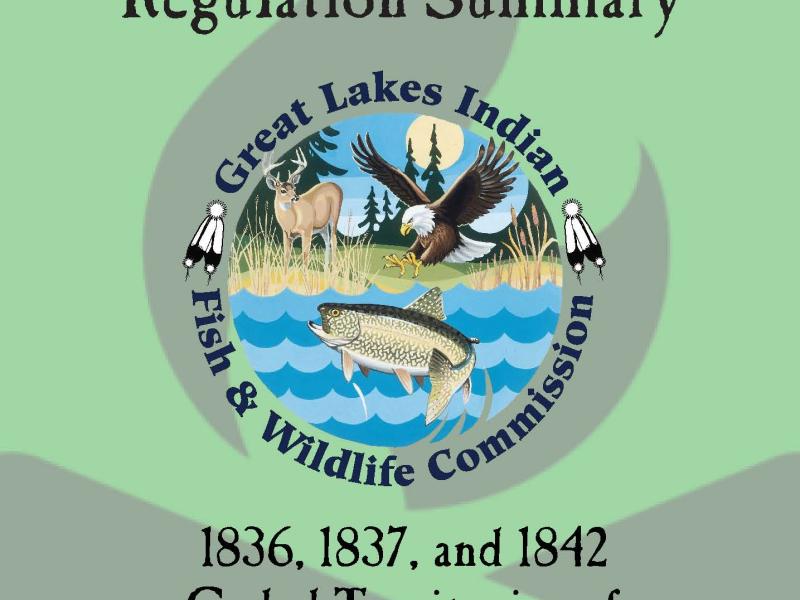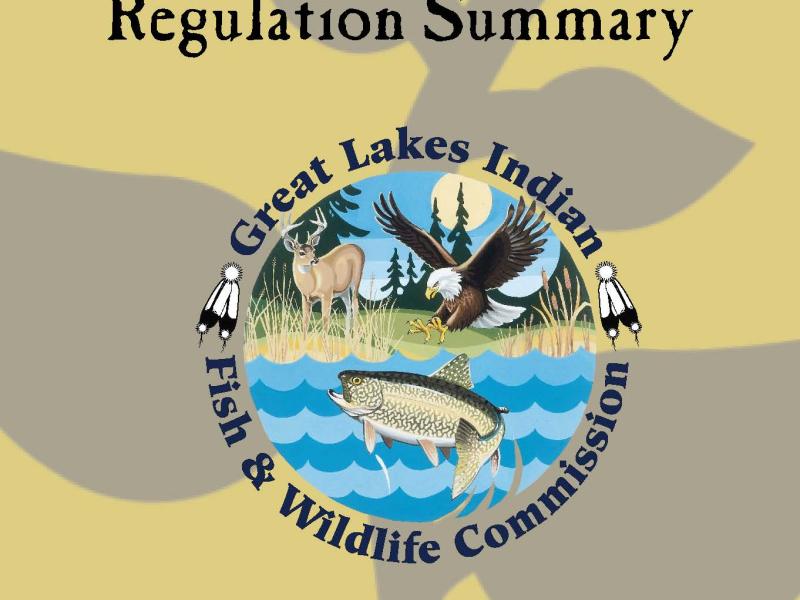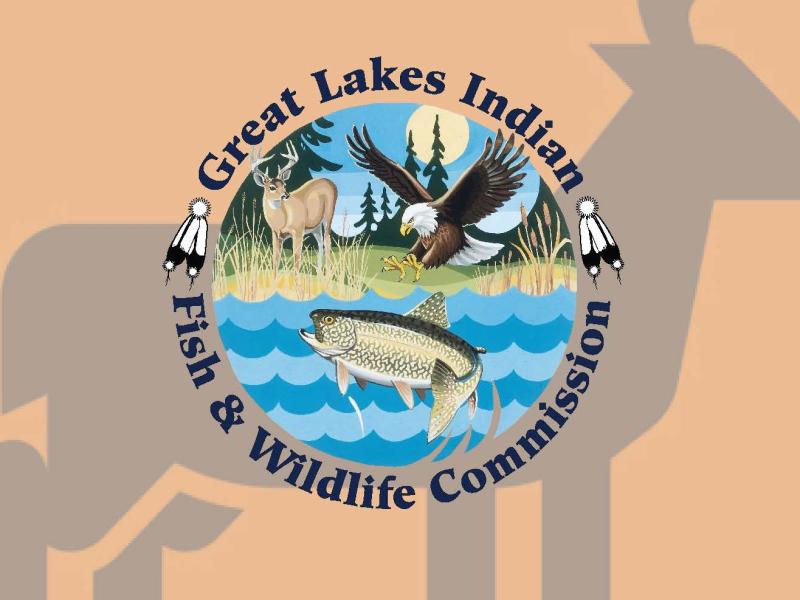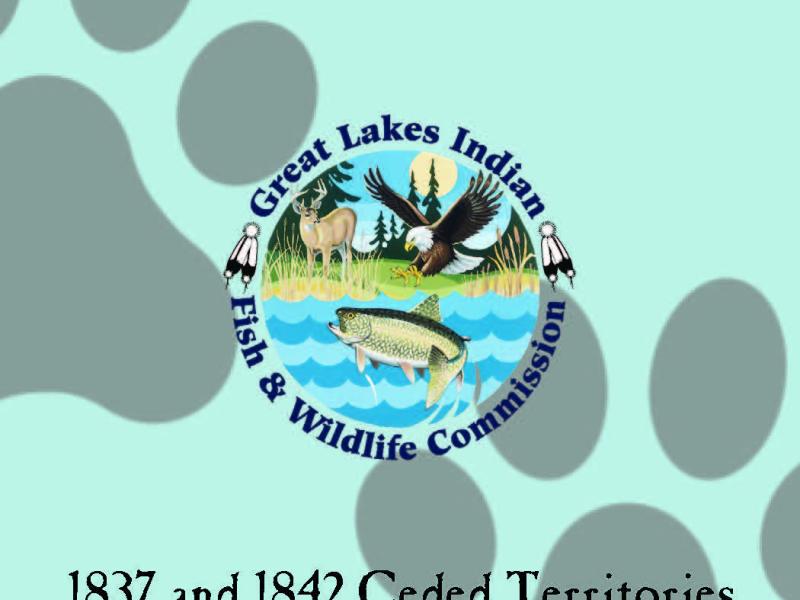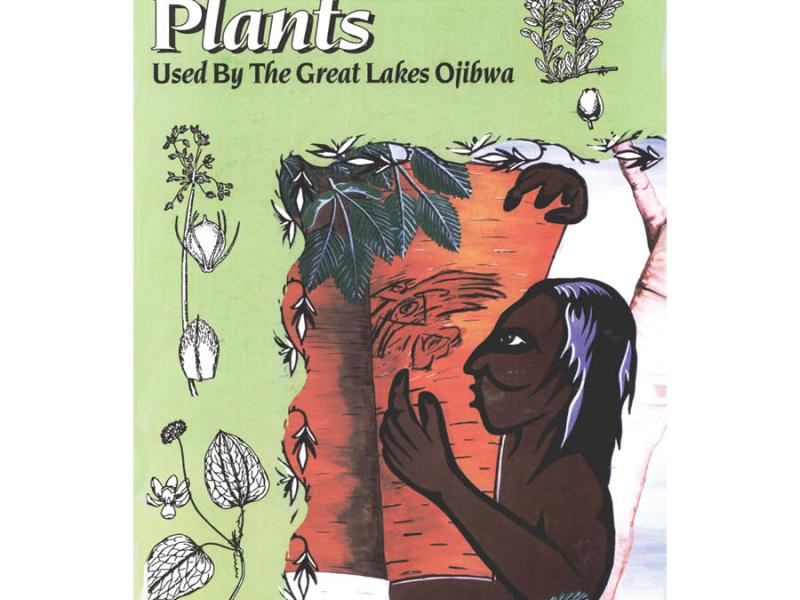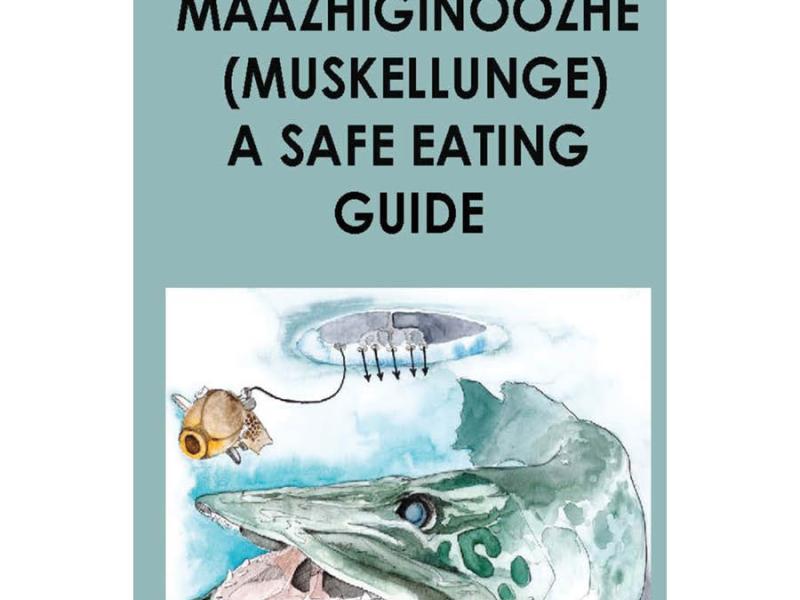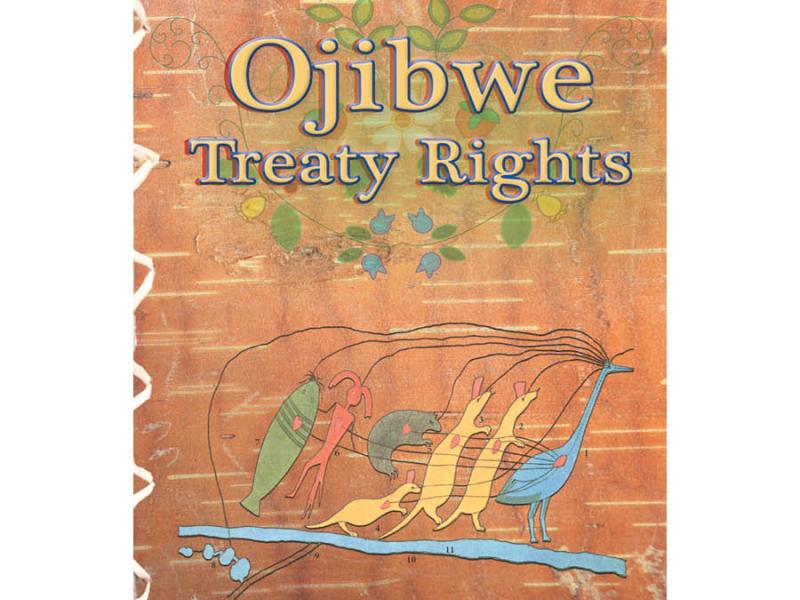This web page is a snapshot; check with your Tribe to learn the appropriate, current rules. This guide does not contain tribal ordinances in their entirety.
You are responsible for knowing your Tribe’s regulations, which are subject to change and may be more restrictive. These pages summarize regulations that will be enforced in tribal court(s); they do not summarize local, state, or federal criminal laws related to the use or possession of firearms that may be enforced in other courts. Check with your Tribe or GLIFWC with questions.
The rules summarized in these booklets are the minimum rules that apply to tribal members exercising treaty rights in the Ceded Territories across Minnesota and Wisconsin and for gathering and camping in Michigan.
You are responsible for knowing your Tribe’s regulations, which are subject to change and may be more restrictive. These booklets summarize regulations that will be enforced in tribal court(s); they do not summarize local, state, or federal criminal laws related to the use or possession of firearms that may be enforced in other courts. Check with your Tribe or GLIFWC with questions.
See section below, Model Code Regulations, for all regulations.
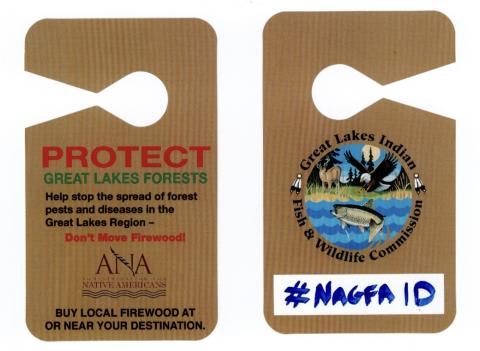
Most treaty harvesting activities require a permit. Permits are available online for camping, gathering, ricing, and game harvesting (deer, bear, small game, turkey, and migratory bird) during and approximately 2 weeks prior to their season opening dates. If you already have a NAGFA account set up, you can issue your own permits. Detailed instructions for issuing permits online can be found here. If you have not previously been issued an off-reservation permit, you will need to contact your registration station or conservation law enforcement office to set up an account.
In addition to harvest permits, carcass tags are required when harvesting elk, bobcat, otter, and fisher in Wisconsin. Carcass tags can be obtained from your tribal registration station or from GLIFWC.
Registering your harvest is a critical part of protecting tribal rights.
Elk
- Elk are a protected species in Minnesota and may not be hunted.
- In Wisconsin,
- Harvesters must have a carcass tag in their possession to hunt elk.
- Attach the carcass tag immediately after harvest.
- Elk must be registered in-person at a tribal registration station or by a GLIFWC warden by 5:00pm on the next calendar day after harvest.
Deer and Bear
- Harvesters must have a deer or bear stamp on their hunting license to hunt deer or bear.
- A carcass tag is not required, however, if you leave a carcass unattended in the field, attach a tag to the carcass with your NAGFA ID and stamp number.
- In-person deer and bear registrations done at a tribal registration station must be completed by 5:00pm on the third business day after harvest.
- Deer and bear registrations done by phone, online or by a GLIFWC warden must be completed by 5:00pm on the day after harvest.
- A registration tag is not required, however, if you leave the carcass with a third party, attach a registration tag to the carcass with your NAGFA ID, stamp number and harvest report number.
Bobcat, Otter, and Fisher
- Harvesters must have a carcass tag in their possession to harvest bobcat, otter, and fisher.
- Attach the carcass tag immediately after harvest.
- Bobcat and otter pelts that will be sold require CITES tags, which can be obtained from a GLIFWC warden.
- Bobcat, otter, and fisher marten must be registered in-person at a tribal registration station or by a GLIFWC warden by 5:00 pm on the third business day after harvest.
Marten
- Marten are a protected species in Wisconsin and may not be hunted.
- In Minnesota,
- Marten must be registered in-person at a tribal registration station or by a GLIFWC warden by 5:00 pm on the third business day after harvest.
Turkey
- Harvesters must have a turkey stamp on their hunting license to hunt turkey.
- Registration can be done by phone, online, or in-person at a tribal registration station or by a GLIFWC warden by 5:00 pm on the third business day after harvest.
Swan
- Harvesters must have a swan stamp on their hunting license to hunt swans.
- Every fully-feathered swan must be registered in-person at a tribal registration station or by a GLIFWC warden within 48 hours of harvest.
Crane
- Harvesters must have a sandhill crane stamp on their hunting license to hunt sandhill cranes.
- Registration can be by phone, online, or in person at a tribal registration station or by a GLIFWC warden within 48 hours of harvest.
HEAR THAT "POP"?
Visit our store to find more resources and publications.
This book includes a brief description of the plant and it's use, a reproduced line drawing, and a map showing approximately where each plant is distributed within the ceded territories.
This cookbook includes recipes featuring traditional Anishinaabe foods which support a healthy lifestyle; harvesting references and resources, as well as kitchen safety and cross-contamination tips.
GLIFWC'S WISCONSIN CEDED TERRITORY GUIDANCE FOR MUSKY CONSUMPTION
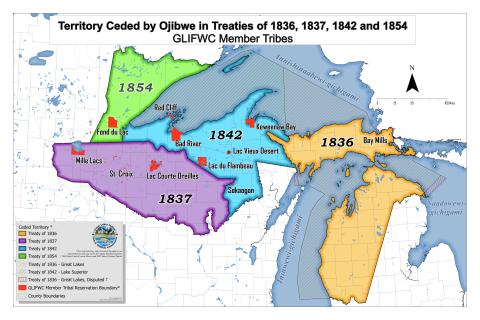
During the 19th century, the U.S. government entered into various treaties with tribes in the Great Lakes region. In those treaties, the tribes ceded (or sold) land, but retained rights to hunt, fish, and gather in the ceded territories. In the years following the treaties, the areas that were ceded became parts of states. State governments aggressively denied the Tribes’ lawfully retained rights to hunt, fish, and gather. After 150 years of being cited, restricted, and harassed, tribal nations began to seek legal affirmation of their rights.
Several positive court decisions in the Great Lakes region affirmed treaty rights and ruled that tribes retained the ability to self-regulate.
The 1972 Gurnoe decision ruled in favor of the Bad River and Red Cliff Tribes’ fishing rights in Lake Superior.
In 1983, the U.S. Court of Appeals for the 7th Circuit ruled in favor of the Lac Courte Oreilles Band in a ruling now known as the Voigt decision. The Voigt ruling was further supported when, in 1997, a three-judge panel of the 8th Circuit Court of Appeals upheld a federal district court ruling affirming the 1837 treaty rights of the Ojibwe in Minnesota. That case, known as Mille Lacs v. Minnesota, was appealed to the U.S. Supreme Court which ruled in favor of the tribes in 1999.
To learn more about these cases, click here to visit the Division of Intergovernmental Affairs.
An interactive map of the ceded territory can be accessed here.
